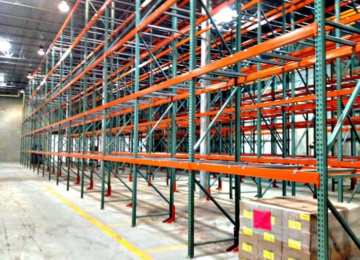Logistic solutions are a popular way of transporting goods, especially if you need them quickly. They can be a great choice for a lot of businesses, but there are certain things you should consider before you decide to use them.
The advantages and disadvantages of logistic solutions are becoming more obvious in different sectors of the global economy. Logistics solutions have many advantages, but they also have disadvantages. Logistics solutions have been a significant part of how the global economy has since evolved. Logistics solutions allow companies to reach their goal, in a way that is more cost-effective. Logistics solutions are a way of maximizing supply chain management.
Pros of Logistic Solutions
A better use of the distribution network
Distribution network is the collection of transportation and warehousing assets that form the core of an organization’s supply chain network. The network keeps goods flowing from the manufacturer to the retailer, or from the warehouse to the retailer. The distribution network consists of all the physical assets that are used to store, transport, and distribute products.
Most people will have a pretty good idea of how a distribution network works. In broad terms, a distribution network is the delivery chain that permits products to reach their final destination. These days, companies rely on a wide range of distribution networks from a small local network to a global network of trucking companies. Usually a company will have a combination of different types of distribution networks.
Transportation and Express Delivery
Logistics is the lifeblood of modern business. You may have heard of process management, supply chain management, and transportation, but few people really understand how these and other logistics activities work together to create a cohesive, efficient supply chain that keeps your business running.
Cons of Logistic Solutions
Coordination
A project where two or more companies are linked together in such a way that the business needs to solve problems that are not completely related to each individual partner. For instance, a car company may engage a trucking company for shipping their cars across the country.
The car company pays the trucking company for the use of their trucks and takes care of the cost of fuel. The trucking company takes care of the cost of fuel and takes care of the cost of repairs. The car company deals with the customers through the phone and the trucking company deals with the cars for the customers through the internet. The car company is a supplier of the trucking company and the trucking company is a supply chain partner of the car company.
Multinationals and Large companies
Corporate inefficiency is a hot topic in the media right now, with many highlighting the benefits of small business over large multinationals and large corporations. Large corporations often keep their costs down by centralising various functions, and use large numbers of mid-to-low level staff who are trained to follow a set of instructions. Large companies have a greater chance of becoming complacent when things go wrong, and can be slow at innovating and developing new ideas. As a result, they may not have the best customer service.
Conclusion
In the recent years, several new technologies have been introduced in the industry of logistics. Most of these technologies are brought under the umbrella of e-commerce, which is increasingly playing a vital role in the supply chain of the logistics industry. Logistics solutions are increasingly important to the success of e-commerce and the success of any company or company’s business.











